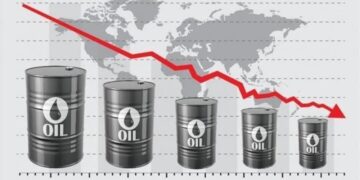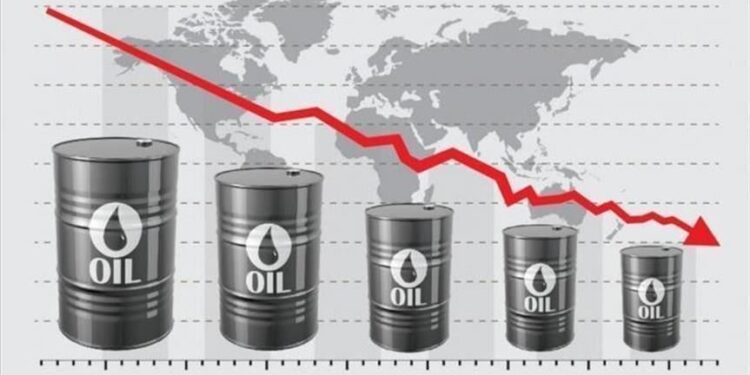Global oil markets reacted sharply to OPEC+’s weekend decision to fast-track production increases, with prices tumbling to three-month lows during Monday’s trading session. Brent crude futures sank 4.6% to $58.50 per barrel, while West Texas Intermediate dropped nearly 5% to $55.53, levels not seen since February 2021.
The sell-off came after eight key OPEC+ members, including Saudi Arabia and Russia, agreed to boost June output by 411,000 barrels per day (bpd), tripling May’s increase of 137,000 bpd. This brings the group’s cumulative production hikes to 957,000 bpd since April as part of their phased withdrawal from 2.2 million bpd in cuts implemented last year.
Market Oversupply Concerns Mount
The accelerated timeline appears designed to discipline quota-violating members like Iraq and Kazakhstan while capitalising on current inventory shortages. However, traders interpreted the move as risking oversupply amid weakening global demand signals. The OPEC basket price already reflected the pressure, slipping from $68.74 to $68.16 per barrel.
Strategic Flexibility Maintained
In their statement, the eight producers emphasised their commitment to market stability, reserving the right to “pause or reverse” increases depending on conditions. The group plans full compensation for any overproduction since January 2024, with the next output decision scheduled for 1 June ahead of July allocations.
Analysts note the production adjustments represent a 44% rollback of pandemic-era cuts, leaving OPEC+ with substantial spare capacity to manage prices. But with the phased increases now running through 2025, the market faces prolonged uncertainty about the delicate balance between supply discipline and meeting post-recovery demand.
The decision comes as global trade conditions deteriorate, testing OPEC+’s ability to stabilise prices while maintaining cohesion among members with divergent economic priorities. All eyes now turn to summer demand trends that could determine whether the group’s gamble on increased production pays off or exacerbates the price slide.



































